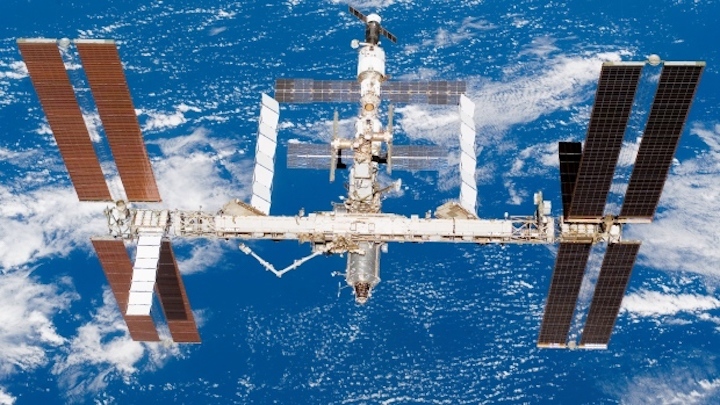4.03.2018
The U.S. pays most of the bills, but its partners have a big say in what happens with the ISS


The International Space Station is considered a shining example of the uniting power of science. Since the late 1980s, countries that were once at war with each other have worked together to further scientific research applied both on Earth and in space.
But in its proposed 2019 budget released last month, the United States, the biggest financial backer of the ISS, indicated it will stop funding the station in 2025, and instead look at transitioning the orbiting laboratory to commercial enterprises.
The headlines that followed seemed to suggest the U.S. plans to sell the station and moonwalk away. But experts say it's not quite that simple.
For starters, the U.S. doesn't have the authority to go ahead and privatize the entire space station. The U.S. could essentially rent out its share of the station, says Ram Jakhu, who teaches international space law at McGill University in Montreal.
"The U.S. may use its part for private purposes … so the whole idea of saying privatizing [the station] is wrong."
There's already significant commercial involvement in the ISS. Boeing, for example, runs technological components in the U.S. module. The European Space Agency (ESA) has an agreement with Airbus to allow the company to install a platform where companies could buy space to conduct experiments or install instruments of their own.
The U.S. can't simply sell its share because Russia, Japan, Europe and Canada are all its partners. In order for the U.S. to do so, all the partners would have to agree to terms under the International Space Station Intergovernmental Agreement, often referred to as the IGA.
The same goes if the U.S. wanted to sell its share to another country.
It wouldn't be easy, Jakhu says.
"There are legal constraints, which are much more serious. Then, of course, there are the financial constraints."
Money, money, money
If a single company was looking to take over the station, it would need very deep pockets. The U.S., which foots most of the bill, contributes up to $4 billion a year.
David Parker, director of ESA's human and robotic exploration program, says the ISS news in the Trump administration's budget was very carefully worded. It says NASA would no longer directly fund the space station after 2025; not that it's planning to stop participating in the space station altogether.
"It's more of an indication of a process to transition to commercializing the space station," he says. "And that's not the same as saying it's commercial."
The U.S. could continue to fund research on the ISS, but pay a company or companies to conduct the experiments, he says.
"How that's going to work exactly is an open point at the moment."
He says all the space agencies are thinking about what comes after the ISS.
The U.S., Canada, Japan and ESA plan to build the Deep Space Gateway, a much smaller space station that will orbit near the moon.
"The partners, all space agencies, will need a platform in low-Earth orbit after the ISS reaches its end of life," says Gilles Leclerc, director general of space exploration with the Canadian Space Agency.
ESA's Parker sees this as a transition from a "monolithic project — the ISS — to a more diverse set of projects in low-Earth orbit and in deep space."
And that, he believes is a step in the right direction.

An illustration depicts what the Deep Space Gateway, a proposed space station that would orbit near the moon, might look like. (NASA)
After more than 50 years of space stations and space access limited to governments, a new type of space age — what many are referring to as "new space" — is in full swing.
So, come 2025, NASA will likely still be involved in a space station in low-Earth orbit. It's also likely there will be some partnership with commercial companies, just as NASA has contracted Boeing and SpaceX to build the next launch vehicles to head to the ISS.
"I don't see what's happening today is unexpected," Jakhu says.
"There is a democratization of space going on … that you could never imagine 10 years ago."
Quelle: CBCNews
